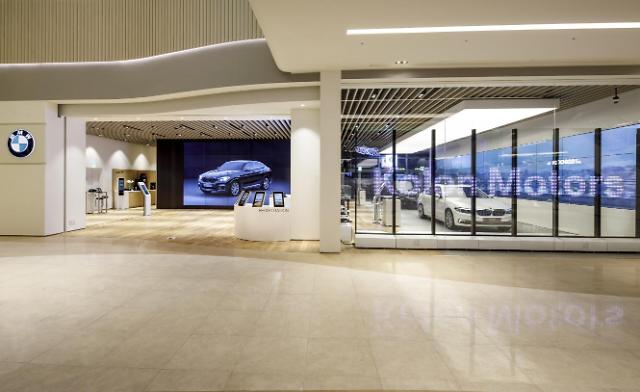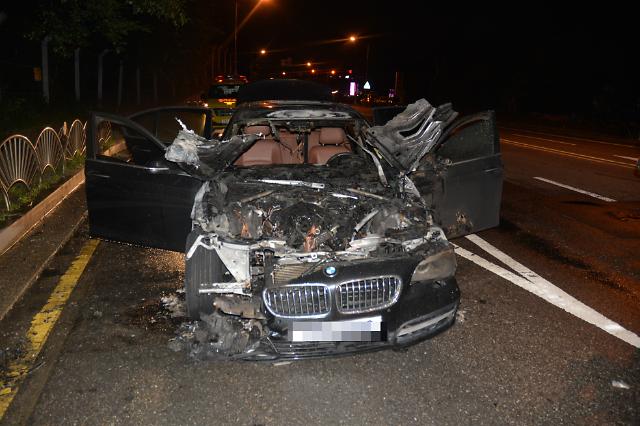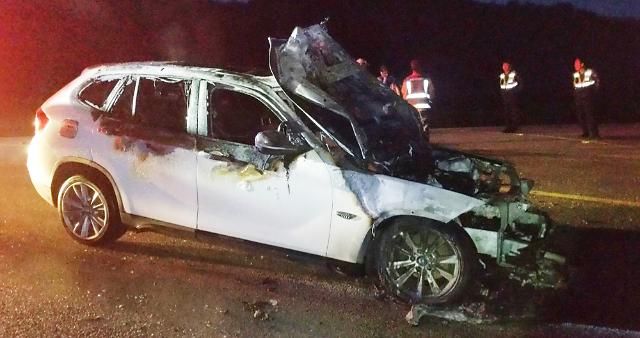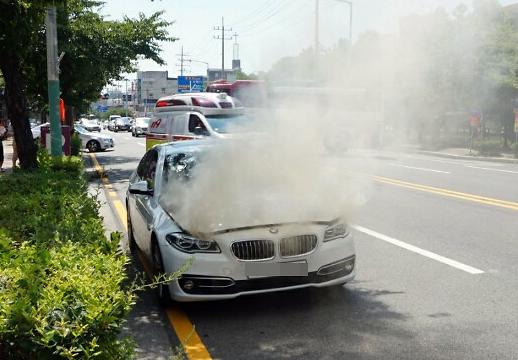
[Courtesy of BMW Korea]
SEOUL -- BMW will face a criminal investigation in South Korea for covering up the risk of fire in cars. The German auto company was accused of failing to take measures even if it knew about structural defects in 2015 and set up a task force at its German headquarters, transportation authorities said.
Experts blamed a design flaw but they identified no artificial manipulation of software. The Ministry of Land, Infrastructure and Transport said Monday that cooling water leaked through a crack in the exhaust gas recirculation (EGR) cooler was mixed with the engine oil and clogged in the intake manifold.
To reduce emissions, the EGR module receives the exhaust gas before cooling and transferring it to the connected intake manifold. BMW Korea has insisted that due to a faulty component in EGR modules, the high-temperature exhaust gas is suspected of inflowing into the intake manifold without being cooled, leading to the creation of a hole and a fire on the engine cover.
BMW will be slapped with a fine of 11.2 billion won ($9.9 million), the ministry said, adding that the company has already set up a task force at its German headquarters in 2015 to make a design change, although its South Korean branch claimed to have recognized correlation between EGR deficiencies and fire in July when the first recall began.
At the end of November, 52 BMW cars have caught fire on the road, the ministry said. Experts identified the boiling of cooling water due to an EGR design flaw and detected a malfunctioning exhaust gas control valve. The root cause of fire is the lack of EGR design capacity, they said adding boiling occurred even under normal operating conditions.
The leakage of coolant is due to cracks in the cooler, not a design flaw, BMW Korea said, adding that a hardware problem can be solved by replacing the defective EGR cooler.
Copyright ⓒ Aju Press All rights reserved.




View more comments